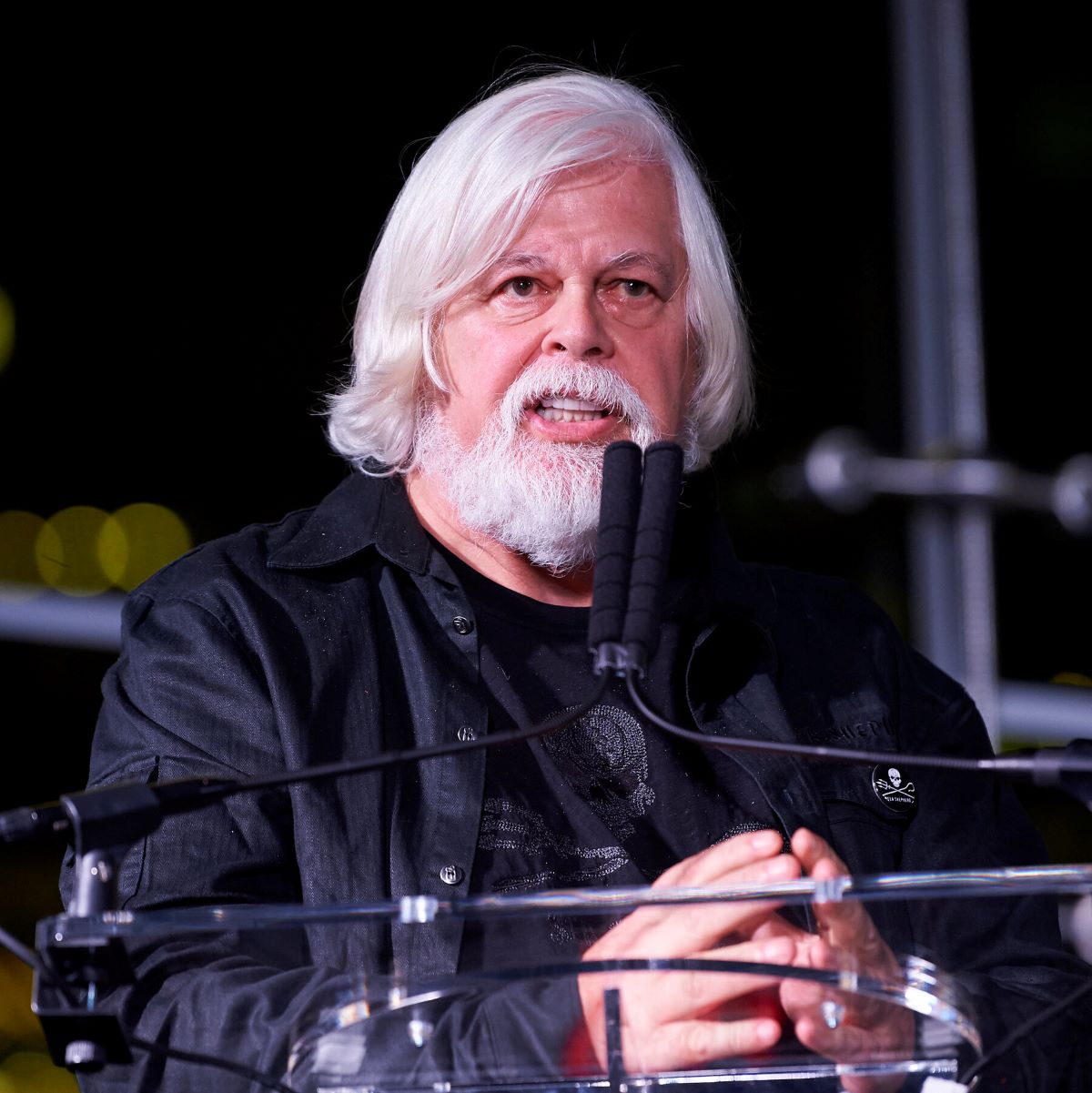Greenland police announced the arrest of veteran environmental activist and anti-whaling campaigner Paul Watson, following an international arrest warrant issued by Japan.
Watson, a 73-year-old Canadian-American and former head of the Sea Shepherd Conservation Society, is renowned for his direct action tactics, which include high-seas confrontations with whaling vessels. His efforts have garnered support from celebrities and were featured in the reality television series “Whale Wars.”
He was apprehended on Sunday when his ship docked in Nuuk, the capital of Greenland. According to a police statement, Watson appeared before a district court to address a request for his detention while a decision is made regarding his possible extradition to Japan.
Whale meat is a component of Japanese culinary traditions, and the Japanese government advocates for the sustainable use of whales.
The Captain Paul Watson Foundation stated on Monday that Watson would remain detained in Nuuk until at least August 15, following the court’s decision.
This detention period is intended to allow the Danish justice ministry time to investigate the case and consider extradition. The foundation noted that Watson faces a maximum prison sentence of 15 years in Japan.
The foundation also mentioned that the Greenland court had denied Watson bail due to concerns about his potential flight risk.
According to the foundation, more than a dozen police officers boarded Watson’s vessel and led him away in handcuffs when the ship stopped for refueling.
The vessel, carrying 25 volunteer crew members, was en route to the North Pacific with the aim of intercepting a new Japanese whaling ship.
The foundation indicated that Watson’s arrest is believed to be connected to a previous Red Notice issued for his anti-whaling activities in the Antarctic region.

They urged the Danish government to release Watson and reject the “politically-motivated” request for his extradition, as stated by Locky MacLean, the foundation’s director.
Interpol, the international police organization based in Lyon, France, confirmed that a valid Red Notice for Watson exists at Japan’s request.
Interpol’s press office clarified that it is up to each member country to decide whether to arrest an individual subject to a Red Notice, which is not an international arrest warrant.
Neither the Japan Coast Guard nor Japan’s Foreign Ministry, which issued the international warrant, have confirmed if they are negotiating Watson’s handover.
However, the coast guard, which is the primary investigative authority in Japan, stated that officials are prepared for a potential handover.
Greenland, an autonomous territory of Denmark, does not have an extradition treaty with Japan, and it remains unclear if or when Watson might be transferred.
Watson has a history of clashes with authorities due to his tactics.
In 2012, he was detained in Germany on a Costa Rican extradition warrant but fled after learning of Japan’s request for extradition, which accused him of endangering whalers during operations in the Antarctic Ocean. He has since lived in various countries, including France and the United States.
Watson, who left Sea Shepherd in 2022 to form his own organization, was also a prominent member of Greenpeace until 1977, when he departed due to disagreements over his aggressive methods.
According to his foundation, Watson’s current ship, the M/Y John Paul DeJoria, was scheduled to traverse the Northwest Passage to the North Pacific to challenge a new Japanese factory whaling ship, described by the foundation as “a murderous enemy devoid of compassion and empathy hell bent on destroying the most intelligent self-aware sentient beings in the sea.”


